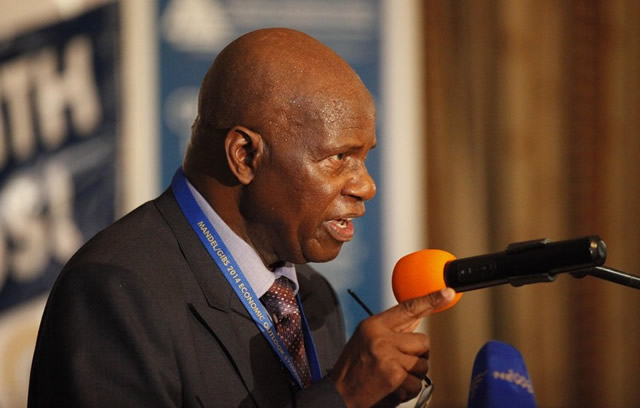Govt gets tough on budget overrruns . . . Restitution from own funds lLegislation on cards

Lloyd Gumbo Senior Reporter
Permanent secretaries and heads of parastatals who approve overspending and diversion of money allocated to their ministries and entities will pay back from their pockets as Government gets tough on financial mismanagement and indiscipline.
The bosses will also be held responsible for public property that is lost, destroyed, damaged or misused.
This in is line with the new Constitution’s dictates on financial management where permanent secretaries and State entity heads are expected to spend money according to the budgetary allocation.
Justice, Legal and Parliamentary Affairs Deputy Minister Fortune Chasi told The Herald last week that the regulations would either be promulgated through amendment of the Public Finance Management Act or introduction of a new Act in line with Section 308 of the new Constitution.
Section 308 (1) and (2) call on officials responsible for expenditure of public funds and those in control of public property to ensure public funds are safeguarded and spent on legally authorised purposes and amounts and to safeguard the property to ensure it’s not lost, destroyed, damaged or misused.
Subsection (4) states: “An Act of Parliament must provide for the speedy detection of breaches of Subsections (2) and (3) and the disciplining and punishment of persons responsible for any such breaches and, where appropriate, the recovery of misappropriated funds or property.”
Government is in the process of aligning existing legislation to the new Constitution with financial management discipline being top on the agenda.
Over the years the Comptroller and Auditor-General’s Office has unearthed massive irregularities and misappropriation of funds running into millions of dollars by ministries and Government entities.
“The Constitution now requires that after disciplining and punishing Government officials and those in charge of State-owned companies for the loss, the next step is recovering of funds or property which in this case means the officials will pay from their pockets,” Deputy Minister Chasi said.
“What this means is that accounting officers like permanent secretaries and finance directors or any other people in control of Government bodies like parastatals and local authorities have a big duty to ensure they manage public funds and property well.
“They must confine their expenditure to items that were approved in the budget. If they deviate from the budget they will be running away from the grain of the Constitution and will be contravening it. The same applies to those who may spend money on approved items in the budget but exceed the approved amount.”
Deputy Minister Chasi said consultations were still underway to see if the provisions should be added to the Public Finance Management Act as amendments or to be introduced as a new Act.
He said the provisions would eliminate poor financial management in Government.
Deputy Minister Chasi said the push for sound financial management was influenced by the country’s national objectives as provided in Section 9 of the Constitution in relation to good corporate governance.
“Financial management has been elevated to a high level and the section (308) represents an effort to ensure that there is a robust financial and property management system in Government.
“The provision has far-reaching consequences and is designed to achieve good financial management through effective and efficient use.
“Permanent secretaries and public sector managers must manage but at the same time will be held more accountable with a view to eliminating waste and corruption in the use of public funds,” said Deputy Minister Chasi.
The new regulations, he said, would also cover procurement with State entities expected to follow the Government’s financial management agenda.
Deputy Minister Chasi said history had shown that there were “massive leakages” in procurement but that would be dealt with by the regulations.
He said the only time officials can escape disciplinary action is when they spend on unauthorised purposes or amounts given there would be compelling evidence that expenditure could not be avoided.
This provision is on Section 307 which states that if it is found that money has been spent on a purpose than was appropriated to it or for purpose where money had not been allocated, the Finance Minister must introduce a Bill in Parliament seeking forgiveness for such unauthorised but unavoidable expenditure.
“Parliament may refuse to grant condonation if the reason for spending is not compelling. Therefore, that forgiveness will only be granted to officials if Parliament feels that indeed expenditure was unavoidable and necessary,” said Deputy Minister Chasi.










Comments